

Back row: Pam Restorick; Jill Warren; Sylvia Hart; Barbara Jolly; Pamela Edwards; Margaret Edwards
Front row: Jane Hargreaves; Glenis Hart; Jennifer Flook; Diane Knight; Jackie Knight; Margaret Andrews; Jackie Warren
Back row: Reg Bray; Unknown; Unknown; Ivor Guppy; Unknown; Unknown
Middle row: Unknown; Bill Read; Bill Read’s son; Unknown; Jim Guppy; Weary
Front row: Derek Fosbury; Unknown; Goldring; Captain Richards; Unknown; Bowering
Upwey in the 1950's was still a more or less self sufficient village, governed by Weymouth Borough Council.
Although privately owned cars were becoming more popular, petrol was still rationed, so most people used public transport.
There was good and frequent transport links to Weymouth, Dorchester and beyond. Trains could be caught at the Wishing Well Halt on Ridgeway as long as you could cope with the steep steps up the embankment. Upwey Station and Upwey Junction Elwell Street and Gray's Corner were the 'shopping centres' for the village. In Elwell Street the post and telegraph office had been run by Miss Jane Corbin since 1905 when she took over from her father. Miss Corbin was awarded the Queens Coronation Medal in 1953. At the age of 91 she was believed to be the oldest sub-
were a walk aw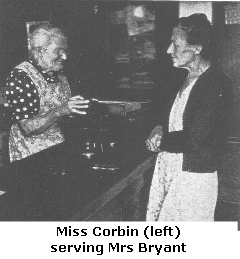 ay in Broadwey but were useful to mothers with prams and cyclists. Buses frequently passed through the village on their way to Bournemouth or Salisbury; or there were the local services which came from Weymouth terminating at either The Royal Oak or Wishing Well.
ay in Broadwey but were useful to mothers with prams and cyclists. Buses frequently passed through the village on their way to Bournemouth or Salisbury; or there were the local services which came from Weymouth terminating at either The Royal Oak or Wishing Well.
Jobs were available locally for many including working as farm labourers, dairymen, gardeners and indoor help at the 'big houses', lorry driving for local haulier Jack Willis, delivering coal for Restoricks, working on the many local market gardens, mechanic at one of the two garages (Shepstones and Upwey Garage at Grays Corner), work at Meech's mills at Upwey, Broadwey or Sutton Poyntz, baking and delivering bread and cakes for Dick Baker, working for builders such as Notley, Fellowes or Crocker & Critchell. Len Smith, Brian Webb and Charlie Langridge were some of those who worked at Shepstones. Rothan Radiators, opened a branch of their Bournemouth based firm in the premises next to Shepstones Garage in 1949. They specialised in the repair of tractor and car radiators and grilles, supplying car springs and brake linings among other things. They had an outrider who would travel round the area collecting items for repair from farmers and blacksmiths. Harry Hill managed the workshop working with Bob Mowlam and Reg Fursey. In the late 1950's Mr Rothan, who lived at Parkstone, sold the business to Marston Radiators and emigrated with his family.
Elwell Street and Gray's Corner were the 'shopping centres' for the village. In Elwell Street the post and telegraph office had been run by Miss Jane Corbin since 1905 when she took over from her father. Miss Corbin was awarded the Queens Coronation Medal in 1953. At the age of 91 she was believed to be the oldest sub-
Other shops in the street included Wagstaff the fishmonger who also sold fish and chips at number 28; the double fronted grocery store at number 34; Lovering the butcher at number 40; Mrs Walters ran a guest house and did outside catering at Trelawney (no. 19) and you could get your shoes repaired at number 25 by Mr Hansford. There were also market g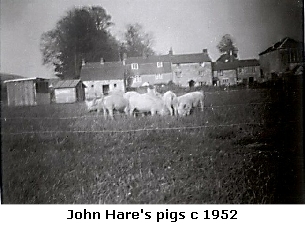 ardens at either end (Warr and Burdens) and the middle (Hare).
ardens at either end (Warr and Burdens) and the middle (Hare).
Mr Hare expanded his agricultural interests in 1950 when he received permission to erect poultry houses; greenhouses and a piggery on land in Church Street, near the old chapel.
At Gray's Corner, on the Dorchester Road were Miss Wright's drapers shop; Gray's General Provisions Stores managed by Mr Forsey; Broadwey post office; the Co-
Jimmy cut girls' and women's hair as well as men/boys. There was a barber's chair in the middle of the hut and bench seats all around the edge where you waited for your turn. If children were too short in the chair Jimmy would put a plank of wood across the arms and they sat on that. Getting your hair cut could take all of a Saturday morning, passing away the time eating sweets bought from Mrs Bush and reading comics provided by Jimmy.
Elsewhere in the village were Eckersall's general provisions stores at 84 Church Street; the bakers at 829 Dorchester Road owned, rather appropriately, by Dick Baker; Mr Vallance was a boot repairer at 694 Dorchester Road; Mrs Russell sold general groceries from her front room in Stottingway Street; Mr Cleverton had a fish van and did a round in Upwey on Wednesdays.
Jack Gee rented watercress beds at Island Gardens from Col Gould. He had a green van and delivered watercress to wholesalers, hotels and local shops. Phone Upwey 448. Sometimes Wigmores would ring asking for more watercress -
Since the end of the Second World War new houses had been built around the village, including 24 houses and 12 flats built by the council in 1948 on land off Shortlands Road -
Drs Pridham, Sloan and Peck looked after the health of the villagers from the surgery at 592 Dorchester Road. Dr Pridham's daughter was receptionist for many years. Nurse Allgood was the local health visitor, stationed at Westham Clinic with two other health visitors who did duty at the clinic, including antenatal talks and issuing baby food/orange juice. Nurse Allgood also visited expectant and new mums in their homes in the Upwey/Broadwey/Preston areas and carried out school visits -
The WI Hut next to Shepstones garage was still the main centre of entertainment in the village, dances and whist drives were held by local organisations to raise funds, including the WI, Conservative Association and the football club. Scouts, guides and brownies were among those who enjoyed parties there with games and gramophone music.
The assembly room at the Royal Oak was used for dinners, parties and meetings. Regular users were the British Legion, Conservative Association and the Rifle Club. At the British Legion Annual Dinner in March 1950 the presentation of a gold watch was made to Mr Alfred Davis in recognition of his work as secretary of the Upwey branch over 14 years. Music was provided throughout the meal by Mr H Scott on the piano and songs were given afterwards by Mr R Llewellyn, Comdr A Jay, Mr Fred Newman, Mr G Trevett, Mr J Ford, Mr K Ford, Mr L James, Mr J Scutt and Mr A House ac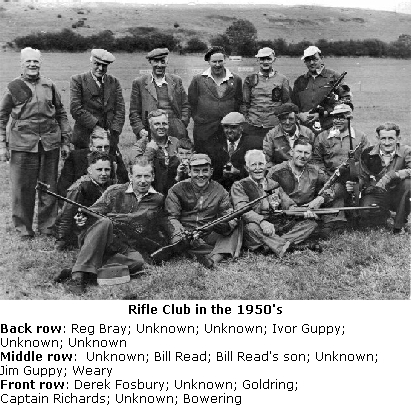 ted as raconteur.
ted as raconteur.
Old and young were among the men of the Upwey Rifle Club who met at the Royal Oak for their third annual dinner at the end of February 1951. The Club was formed following the disbanding of the Home Guard at the end of the war. The president, Lt Col Thoyts, congratulated Weymouth Corporation for choosing that night to give them a 'great white way' outside. Sodium discharge lamps lighted the road outside for the first time.
He congratulated the 'B' team on their position in the league and spoke of his enjoyment of their meetings on Tuesdays and some Sundays at the range in Elwell St. He was very pleased that young members were coming along and it was gratifying to see the older members looking after the youngsters.
The Upwey & Broadwey War Memorial and Thanksgiving Fund (see Village Life in the 1940's) continued to raise money to build a community hall as a lasting memorial to those who had lost their lives in the war and bring the villages of Upwey and Broadwey together, with 'The Big Affair' held in Hurdlemead on August Bank Holiday Monday, the main event. The day combined a gymkana, flower and vegetable show, special displays, stalls and sideshows and dancing in the evening -
By 1952 a site for the hall (which would have a dance floor, a stage, dressing rooms, cloakrooms, a kitchen and would be able to seat 325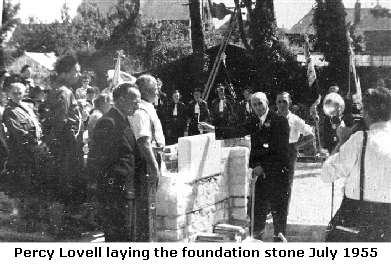 people), had been purchased in Victoria Avenue and planning permission granted.
people), had been purchased in Victoria Avenue and planning permission granted.
On 24 November 1956 the Upwey & Broadwey War Memorial Hall was officially opened by Admiral Sir Victor Crutchley (Dorset's High Sheriff in 1955) who commended the idea of a community hall as a most useful and thoughtful war memorial.
The first dance to be held at the hall was organised by Upwey & Broadwey Football Club's social secretary Norman Strange on 1 December 1956 and was a great success,. Dancing was a very popular entertainment and the Football Club regularly ran dances using local bands such as Dave Burns, Embassy, The Flamingo Four, Mark Ward Quartet, Sam Fowler and The All Stars.
Dances were also organised by the Hall Committee, held on the last Friday of the month and organised by Eric Fosbury and dance instructor Mr Quinton. The New Year's Eve dance in December 1958 was organised jointly by the Football Club and Hall Committee. These dances brought young people together and many a romance began. In fact the hall became a popular venue for wedding receptions.
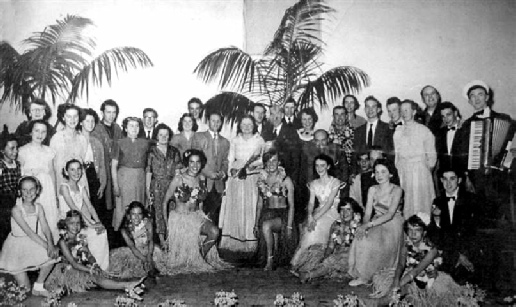 The newly formed Upwey & Broadwey Youth Club (organisers Norman Strange and Madge Moon) applied for permission to use the hall and were soon encouraging talented youngsters to make good use of the stage facilities by putting on concerts.
The newly formed Upwey & Broadwey Youth Club (organisers Norman Strange and Madge Moon) applied for permission to use the hall and were soon encouraging talented youngsters to make good use of the stage facilities by putting on concerts.
In April 1957 the County Council opened a Branch Library in one of the rooms at the hall (now called the Menzies Room). This had a separate access and proved very popular being centrally placed to serve both Upwey and Broadwey.
1958 saw the Hall Committee form the Upwey & Broadwey Social Club which arranged events such as Bingo, billiards, table tennis, tennis (played at Westbrook House) and a cricket team. Fred Virgin who suggested the club said its aim would be to ensure that the hall was used for the benefit of the whole community as envisaged by the original fundraisers.
The villages now had two cricket teams, the Upwey & Broadwey team and the newly formed Social Club team, both playing at Redlands.
There were several tea rooms around the village catering for the many visitors and providing work for youngsters at weekends and in school holidays, including in the early 1950's, Mrs Hilton at Upwey Garage who served tea in the front room of her strikingly designed house which had a curved bay window and flat roof. There was The Croft, a café at the bottom of Ridgeway opposite the Royal Oak, Lillywhites in Church Street (Watery Lane end) where you could enjoy some home made fudge with your cup of tea and of course, Clovelly Tea Rooms situated near the Wishing Well. The Bailey's rebuilt the tea rooms in 1951 as the premises had been empty for a while (previously been run by Willis) and the tea rooms were in a bad state.
George and May Moore rented the Clovelly Tea Rooms from Col Gould from 1953 to 1959. The tea room could accommodate between 35-
Stanley Stokes became the headteacher at Upwey School in 1951 and was assisted by Mrs Hannam. Playtime included marbles, hopscotch, skipping, 'Farmers in his den' and 'What's the time Mr Wolf', there wasn't much room in the playground for the boys to play football but they tried, using the bike shed as a goal. One of the school events pupils looked forward to was the annual country dancing festival at Bovington.
Miss Weaver's School of Dancing at The Maples, Laurel Lane was popular with many local girls and they were sometimes asked to perform at garden fetes in the village.
There was great excitement in February 1950 when a hoard of 279 silver coins from the reigns of Queen Elizabeth, James I, Charles I and Charles II were found in a chimney during the demolition of East Hill Farm Cottage on Goulds Hill. The cottage had been empty for some years and was being demolished to make way for a new house to be occupied by Mr Donald Beaton and his family. The coins discovered by Len Clark were declared treasure trove at a special inquest held at Westbrook House. A selection of the coins were retained by the British Museum, the rest being returned to the finder Len Clark of The Mason's Arms, who gave some to Mr Beaton as a keepsake.
Mrs Florence Kenyon was elected councillor in 1951 for North Ward which included Upwey, Broadwey and parts of Preston. She was the first female candidate to stand for this ward. Mrs Kenyon had lived in Upwey as a child, leaving the village when she married. She returned in 1941 and lived in Elwell Street. Mrs Kenyon proved to be an exemplary councillor and worked hard representing the villagers.
Travelling by train became more difficult when Upwey Station on the Abbotsbury Branch Line closed to passengers in December 1952. There had been six trains a day (Monday to Saturday) which had provided villagers with the opportunity to visit relatives and friends in the villages along the route or enjoy outings to Abbotsbury where they could visit the gardens, Swannery or Chesil Beach. Then in 1957 the Wishing Well Halte on the main line was closed. This meant that anyone wishing to use the train had to make their way to Upwey Junction which was some distance away, off the Littlemoor Road in Broadwey.
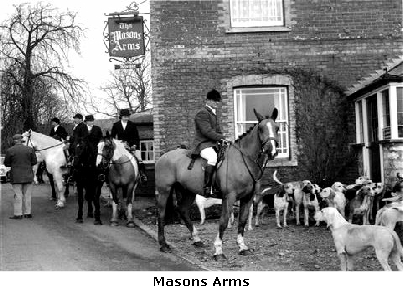
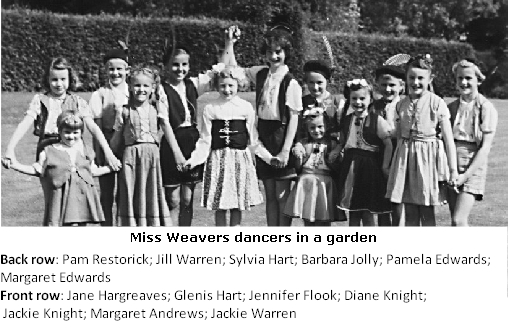
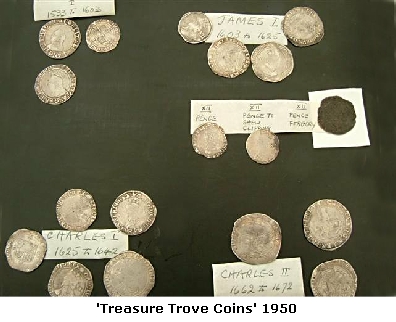

Youth Club Players -